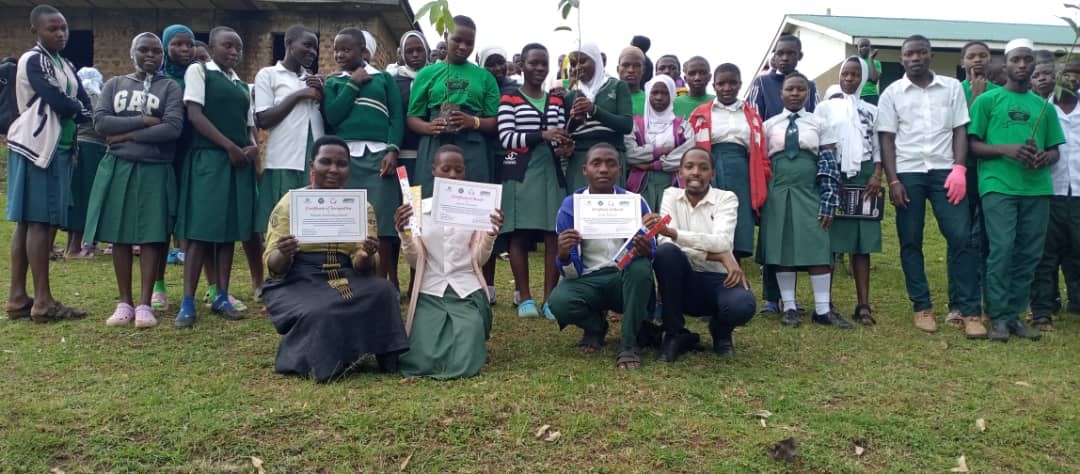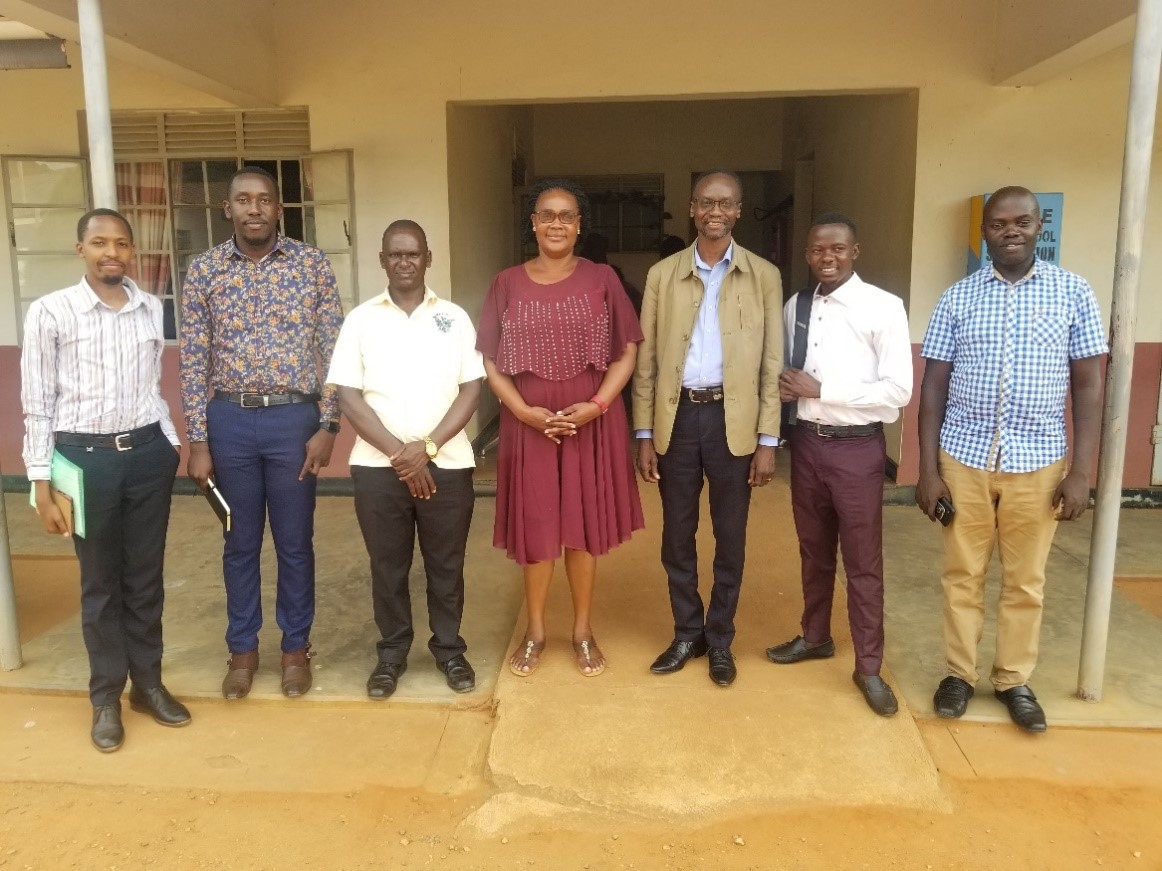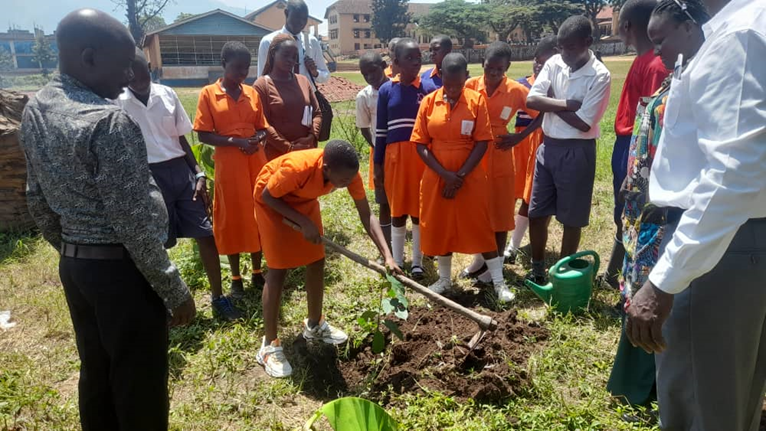
As the occurrence of extreme weather events such as floods and landslides occasioned by climate change increase, several efforts are needed to contribute to building resilience in communities. MakSPH with support from the This is Public Health (TIPH) Global Grant Program (TIPH Global) which seeks to increase the visibility of public health in a region outside of the United States have been working with students in primary and secondary schools in Mbale city to promote preparedness, resilience, and safety in the face of floods and landslides in Mbale City. The Elgon region in Eastern Uganda where Mbale District lies is not only prone to floods but also landslides due to its geographical location and topography. These natural disasters have continually caused significant damage to infrastructure, properties and led to loss of human lives. In this project we looked at how youths particularly students can be champions of fighting climate change in their communities. We involved students from secondary and primary schools.
The project titled “Raising awareness and building resilience towards floods and landslides in the Elgon region in Mbale” was implemented in three major phases. The first phase involved a scoping visit to Mbale and stakeholder engagements in Kampala and Mbale cities with an aim of presenting the concept and workplans to the different stakeholders. We engaged school administrators, local authorities from Mbale City Authority, 30 school teachers and staff from Mbale School of Hygiene.

The second phase of the project involved environmental health education sessions reaching 2,200 learners conducted in the five schools. Two primary schools; North Road primary school and Nabisolo primary school and three secondary schools; Wanale Secondary School, Mbale secondary school and Nkoma secondary school. This project was mainly targeting primary six pupils and senior three students to allow for peer-to-peer mentorship among fellow students in other classes. This phase also involved a pre-assessment of learners and health education sessions focused on raising awareness and building resilience towards floods and landslides. The analysis of assessment data indicated an improvement in the performance.
Health education sessions tackled various topics to enhance the students’ understanding about floods and landslides. These topics included causes, effects, and response in relation to floods and landslides, and various roles of environmental health scientists. Thereafter, learners were introduced to a climate change essay writing competition where 350 entries were received from learners. This phase of this project was concluded with a climate change seminar at Mbale School of Hygiene which brought together over 112 environmental health certificate and diploma students from the institution.

During the third phase, trees were planted and winners for the climate change essay writing competition were recognized. The best entries in the competition were awarded certificates and prizes. Certificates were also presented to the schools in recognition of their participation and two trees were planted in each of the five schools. These activities were conducted collaboratively by a team from MakSPH and School of hygiene in Mbale

The district stakeholders appreciated the project and its accomplishments.
“It is important that the School of Public Health actively engages with the students to provide them with knowledge on various public health issues. It is worth noting that the students have shown keen interest and active participation in the climate change essay competition. I wish you come back even next year,” said the headteacher of Northroad primary school.
“We should definitely continue this collaboration with the School of Public health and expand this project in Mbale city,” said Mbale City Health Inspector.
The project has equipped students with knowledge on how to respond to floods and landslides, fostering resilience in their communities. In efforts to raise awareness and resilience towards climate change, engaging student communities should be considered among the sustainable strategies.
The project team which comprised of environmental health student volunteers was mentored by Dr. Rawlance Ndejjo and supported by Mr. Filimin Niyongabo, the TIPH Global Ambassador and a postgraduate student of Master of Environmental and Occupational Health (MEOH) at MakSPH.
The TIPH Campaign, sponsored by Association of Schools and Programs of Public Health (ASPPH), was launched in 2008 to raise awareness about the field of public health and the range of professions that are encompassed within the field. Project implementation was supported by the Departments of Health and Education at Mbale City Council, Administrators, and teachers from the 5 schools and the collaborative support from Mbale School of Hygiene.
By Divine Katiiti and Filimin Niyongabo

